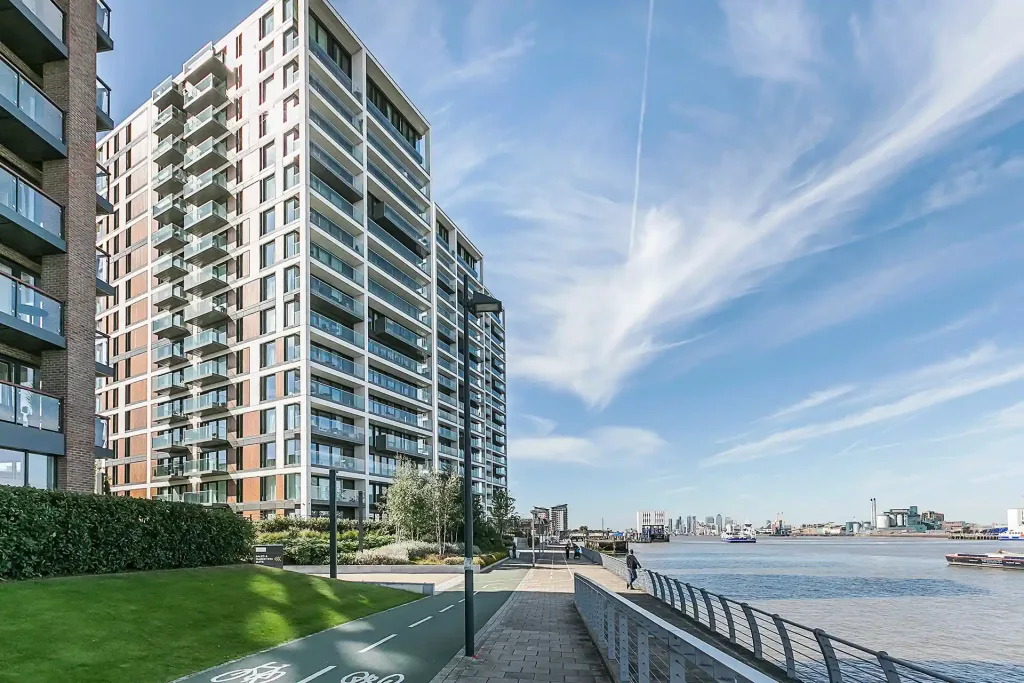Change of Use From Commercial to Residential: How to Convert Your Property Successfully
Did you know that the change of use from commercial to residential has become more prevalent, with office vacancies in major cities skyrocketing by up to 20% since the pandemic? This startling statistic has property investors and developers scrambling for innovative solutions, with converting commercial to residential being one of the most popular strategies. But is it as simple as it sounds? If you’ve ever wondered, “Can commercial properties be used for residential purposes?” or “How much does it cost to convert commercial property to residential?”—you’re in the right place. Let’s dive into the world of commercial-to-residential conversions and uncover the tips, costs, and opportunities that await.

Table of Contents
- Understanding Commercial to Residential
- 5 Essential Tips when Converting Commercial Property into Residential
- Do You Need Planning Permission to Convert Commercial to Residential
- Opportunities and Challenges of Converting Commercial Property
- How Much Does it Cost to Convert Commercial Property to Residential
- FAQ
- Conclusion
Understanding Commercial to Residential Conversion
A commercial to residential conversion, or change of use, is the process of transforming office spaces, retail units, or other commercial properties into residential accommodation. But why are developers increasingly focusing on converting commercial spaces, such as offices and warehouses, into homes? The answer lies in the growing demand for housing, the potential for higher returns on investment, and the opportunity to revitalise underutilised areas.
5 Essential Tips when Converting Commercial Property into Residential
-
Assess the Property’s Potential
- Not all commercial buildings are fit for residential use.
- Evaluate the building’s structure, layout, etc.
- Check if the building is located in a conservation area, areas of outstanding natural beauty or national park.
- Consider natural light, ventilation, and potential for outdoor spaces.
- See if there are any new upcoming developments in the area which would be beneficial to a residential property.
-
Research Zoning Laws and Building Codes
- The most important step in converting a commercial property to residential is understanding and navigating zoning laws.
- Understand local regulations for commercial to residential conversions.
- Identify any restrictions or special requirements.
-
Create a Comprehensive Design Plan
- Develop floor plans that maximise living space
- Incorporate modern amenities and energy-efficient features
-
Hire Experienced Professionals
- Work with professionals familiar with conversion projects, Call Greenway Associates today, we have decades of experience.
- Consult with legal experts to navigate regulatory hurdles
-
Plan for Long-Term Sustainability
- Consider future maintenance and operational costs
- Implement eco-friendly features to attract environmentally conscious tenants
Do you need planning permission to convert Commercial Property into Residential?
Converting a commercial property to residential use often requires planning permission. Here’s what you need to know:
- Check the property’s current “use class”
- Apply for change of use permission if required
- Submit necessary documents, including:
- Application form
- Certificate of ownership
- Site plans and drawings
- Design and access statement
- Fire safety statement (for buildings over 18 meters tall)
Pro Tip: Always consult with local authorities before starting any conversion work to ensure compliance with all regulations.
Opportunities and Challenges of Converting Commercial Property
Opportunities:
- Revitalise underutilised urban areas
- Meet growing housing demands in city centres
- Potentially higher returns on investment compared to traditional commercial leasing
Challenges:
- Complex zoning and building code requirements
- High initial investment costs
- Potential resistance from local business communities
- Demand for residential space in commercial zones may be lower
How much does it cost to convert Commercial Property to Residential?
When converting a commercial property for residential use, multiple costs are applicable.
- Professional Fees: Professional fees are for the design team, which includes the architect or architectural designer, the structural engineer, the M&E consultant and others.
- Planning Permission Fees: The local authority in each county has a different fee to grant planning permission to convert the property.
- Conversion Costs: You will need an experienced builder to price the whole project.
- Finance Fees: To raise finance for the project, a valuation fee needs to be paid.
- Interest Rate for Financing: This would depend on the project size.
- Lender Arrangement Fees: This can range from 1% to 2% of project cost depending upon the lender and the overall development project.
- Legal Fees: There will be legal fees that will be applicable for the legal work.
Call Greenway Associates today on 0203 745 7571 to discover how much you could be looking to spend on your Commercial to Residential Conversion.
FAQs When Converting Commercial Property to Residential
- Can you convert a commercial space into a residential property?
Yes, but it requires specific permissions from local authorities and compliance with zoning laws. - Is it legal to live in a commercial property?
Generally, it’s not allowed unless the property has been officially converted for residential use or is in a mixed-use zone. - What is mixed-use zoning?
Mixed-use zoning allows both commercial and residential uses within the same area or building. - What are the disadvantages of staying in a commercial property?
Residential settlements in commercial properties can disrupt the balance of commercial activity and may lack residential amenities.
Conclusion
Converting commercial property to residential use can be a lucrative investment strategy in the right circumstances. By following our tips, understanding the costs involved, and navigating the legal landscape, you can tap into this exciting opportunity in the real estate market.
Projects like this, converting commercial properties into more lucrative residential accommodations, are helping to address the housing shortage and creating good business for commercial property owners in the process. If you own an office space that is not paying its way, come and see us to discuss ways in which to transform your asset into something more attractive, both aesthetically and financially.
Got an asset that’s not paying its way? Talk to Greenway Associates on 01737 652737


